|
|
|
|
The coronavirus pandemic has led to more than 1 million deaths across the world, as well as widespread economic distress. Almost all nations are battling with how best to recover from the devastating impact on lives, economies, political and healthcare systems as well as social bonds. Sandra Liebenberg discusses what human rights can contribute to the responses and recovery strategies, to help states build fairer societies and economies
that will be more resilient to future shocks.
In other news, the humanitarian crisis at the U.S.-Mexico border didn’t magically disappear at the onset of the pandemic. Instead, with official crossings largely closed and many migrant shelters shuttered, thousands of Central Americans remain stranded without aid in Mexico as they wait for their U.S. asylum claims to be processed. Katrina Burgess has seen the pandemic create new hardships for migrants. COVID-19 has also diverted
attention away from the Trump administration’s new restrictions on the right to asylum.
|
Thabo Leshilo
Politics + Society
|

|
|
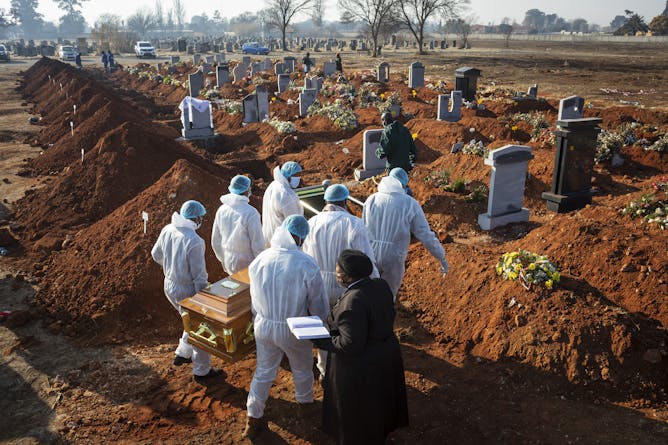
Understakers have had to take special precautions following a spike in COVID-19 related burials.
EFE-EPA/Kim Ludbrook
Sandra Liebenberg, Stellenbosch University
While restrictions on civil and political liberties may be necessary to protect lives, human rights law requires that they go no further than what's strictly necessary to achieve this goal.
|
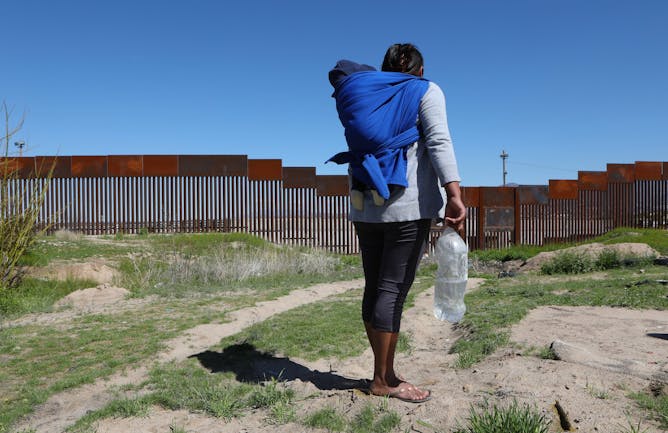
The pandemic and anti-immigration policies haven’t stopped migration from Central America – they’ve just made conditions at the border more hazardous.
Herika Martinez/AFP via Getty Images
Katrina Burgess, Tufts University
COVID-19 has created new hardships for migrants while giving the Trump administration an excuse to further restrict asylum as public attention focuses on the pandemic.
|
Politics
|
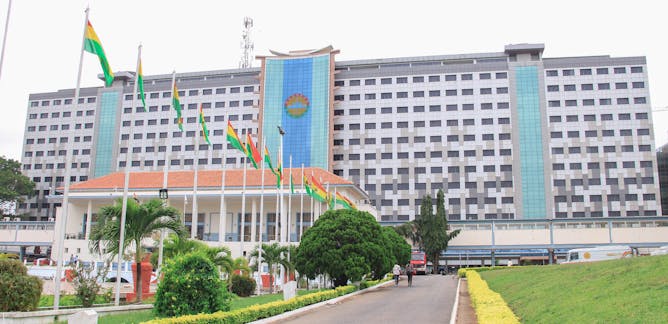
Martin Acheampong, University of Bamberg
An open candidate selection process would provide less incentive for the issuance of material benefits to only a few delegates while the constituency is neglected.
| |
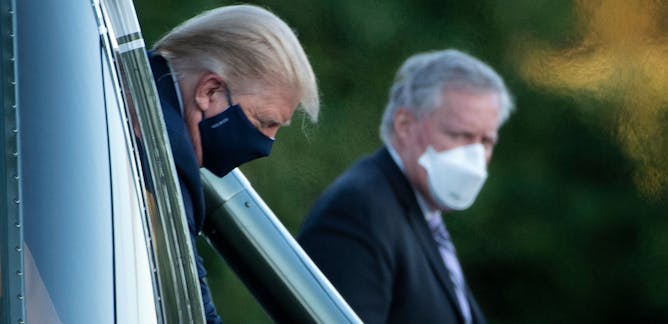
Stephanie Newbold, Rutgers University Newark
A president may transfer power to the vice president if they are no longer capable of carrying out their official role. But there are many unanswered questions about this rarely used process.
|
|
|
Environment + Energy
|
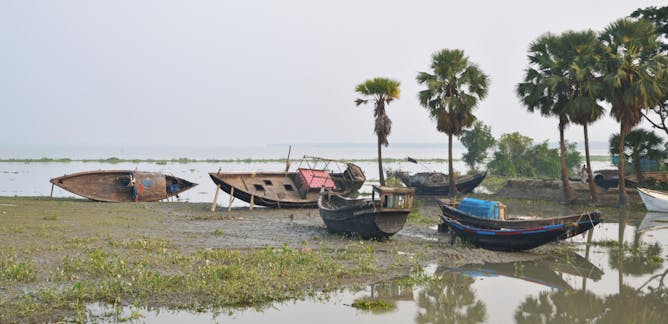
Sonja Ayeb-Karlsson, United Nations University; Celia McMichael, University of Melbourne; Ilan Kelman, UCL; Shouro Dasgupta, Università Ca'Foscari
Rising sea levels are as likely to trap people as they are to force them to move.
| |
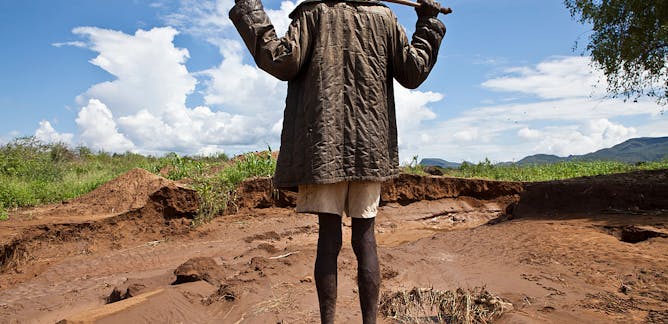
Karl Hughes, World Agroforestry Centre (ICRAF)
Regreening Africa works directly with 500,000 households to restore one million hectares of agricultural land.
|
|
|
Health + Medicine
|
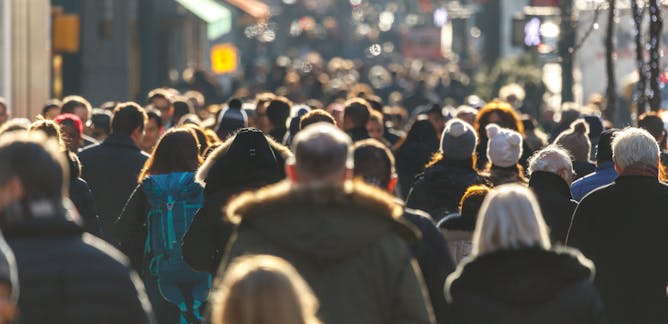
Pieter Trapman, Stockholm University
People aren't uniform in how they behave – nor in how they spread disease. At a population level, that makes a difference.
| |
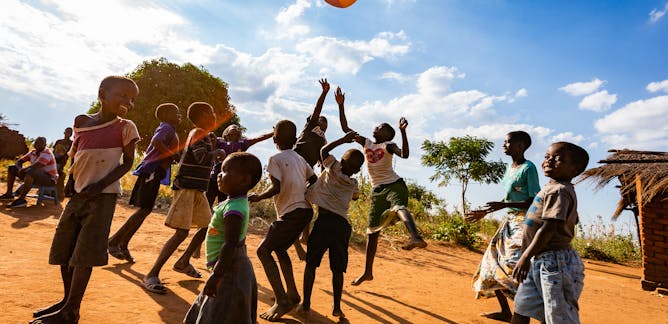
Griphin Baxter Chirambo, Mzuzu University; Adamson S. Muula, University of Malawi; Bo Andersson, Lund University; Ciara Heavin, University College Cork; John O'Donoghue, Imperial College London; Matthew Thompson, University of Washington; Yvonne O'Connor, University College Cork
Health surveillance assistants provide services in village clinics, mainly by assessing signs and symptoms in sick children. An electronic community case management app could make their job easier.
|
|
|
Science + Technology
|

Mark Lee, Aberystwyth University
How could a software box have a subjective viewpoint of, and in, the physical world that humans inhabit?
| |
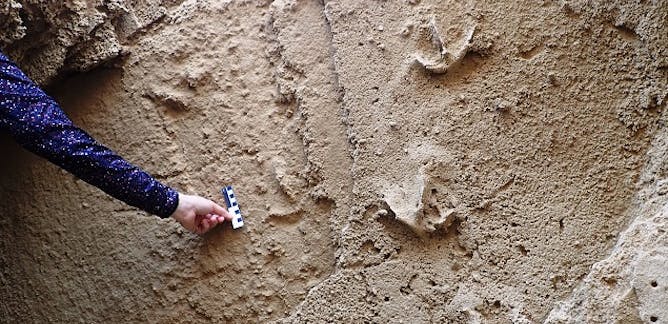
Charles Helm, Nelson Mandela University
One avian track, probably made by a large gull or a small goose, was found in sediments that have been dated to about 400,000 years. That makes it the oldest avian track reported from southern Africa.
|
|
|
En Français
|
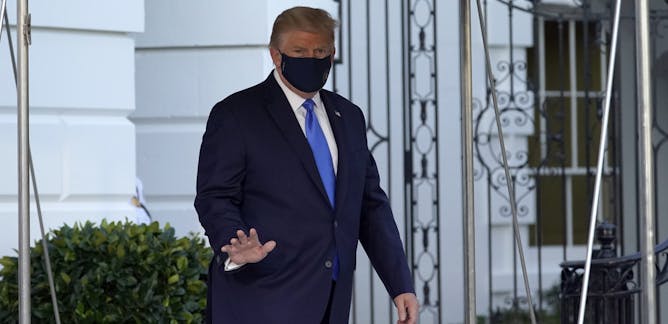
Daniel Cooper, Griffith University; Brendon O'Connor, University of Sydney
On ignore encore à quel point Donald Trump est malade. Mais le seul fait qu’il a contracté la Covid-19 a probablement réduit ses chances de réélection.
| |

Vincent Boudon; Cyril Richard
Comment fait-on le lien entre ce qui se passe à l’échelle de la planète entière et l’échelle de la molécule, de CO₂ par exemple ?
|
|
|
| |
| |
| |
| |
| |
| |
|
|
|
|
|
|
|